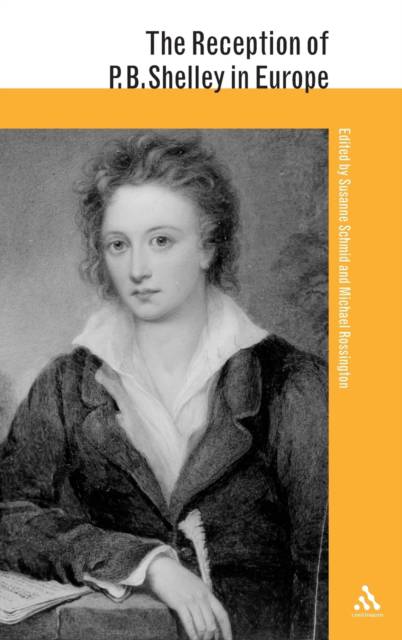
- Afhalen na 1 uur in een winkel met voorraad
- Gratis thuislevering in België vanaf € 30
- Ruim aanbod met 7 miljoen producten
- Afhalen na 1 uur in een winkel met voorraad
- Gratis thuislevering in België vanaf € 30
- Ruim aanbod met 7 miljoen producten
Zoeken
The Reception of P. B. Shelley in Europe
€ 864,95
+ 1729 punten
Omschrijving
The widespread and culturally significant impact of Percy Bysshe Shelley's writings in Europe constitutes a particularly interesting case for a reception study because of the variety of responses they evoked. If radical readers cherished the 'red' Shelley, others favoured the lyrical poet, whose work was, like Byron's, anthologized and set to music. His major dramatic works, The Cenci and Prometheus Unbound, inspired numerous fin-de-siècle and expressionist dramatists and producers from Paris to Moscow. Shelley was read by, and influenced, the novelist Stendhal, the political theorist Engels, the Spanish symbolist Jiménez, and the Russian modernist poet Akhmatova. This exciting collection of essays by an international team of leading scholars considers translations, critical and biographical reviews, fictionalizations of his life, and other creative responses. It probes into transnational cross-currents to demonstrate the depth of Shelley's impact on European culture since his death in 1822. It will be an indispensable research resource for academics, critics, and writers with interests in Romanticism and its legacies.
Specificaties
Betrokkenen
- Uitgeverij:
Inhoud
- Aantal bladzijden:
- 460
- Taal:
- Engels
- Reeks:
Eigenschappen
- Productcode (EAN):
- 9780826495877
- Verschijningsdatum:
- 21/12/2008
- Uitvoering:
- Hardcover
- Formaat:
- Genaaid
- Afmetingen:
- 155 mm x 234 mm
- Gewicht:
- 839 g

Alleen bij Standaard Boekhandel
+ 1729 punten op je klantenkaart van Standaard Boekhandel
Beoordelingen
We publiceren alleen reviews die voldoen aan de voorwaarden voor reviews. Bekijk onze voorwaarden voor reviews.







